us government
Latest
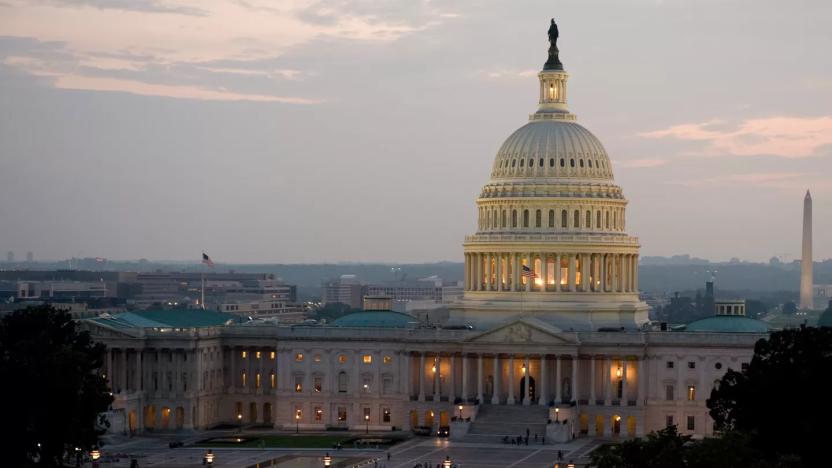
Microsoft Copilot has reportedly been blocked on all Congress-owned devices
US Congressional staff members can no longer use Microsoft's Copilot on their government-issued devices, according to Axios.
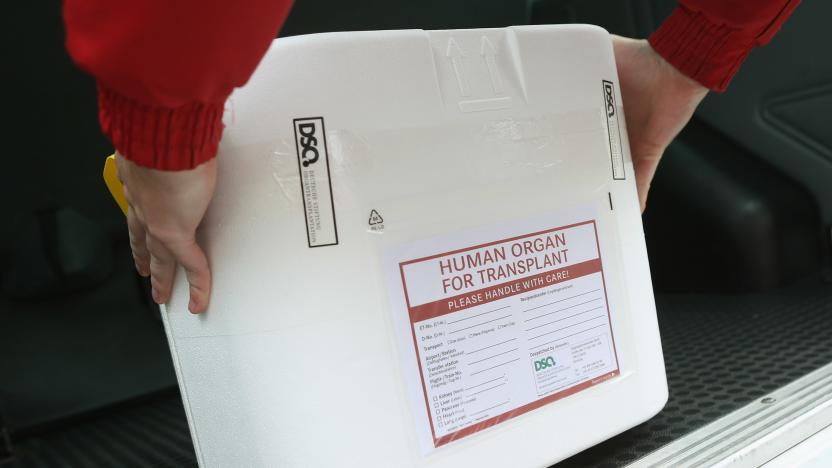
Report: The US organ transplant network is failing desperate patients
The US network used to get donated kidneys, livers and hearts to desperate patients has serious issues and "needs to be vastly restructured."
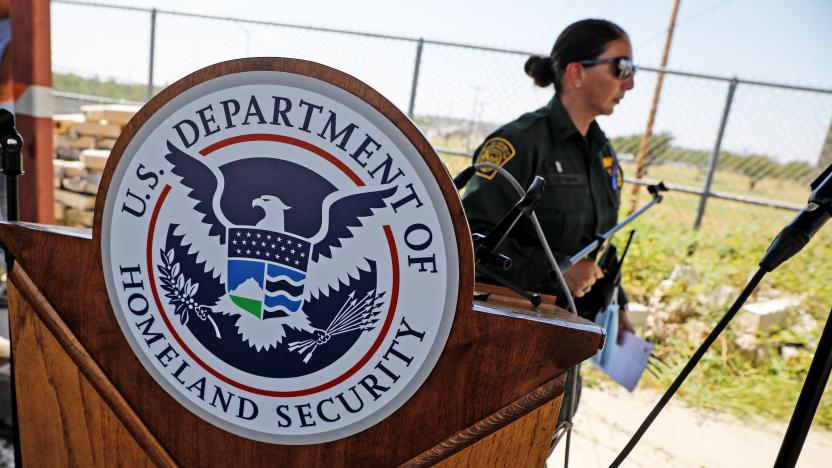
Homeland Security offers $5,000 bug bounties as part of new 'Hack DHS' program
The US Department of Homeland Security (DHS) is offering up to $5,000 bug bounties under a new program called Hack DHS.
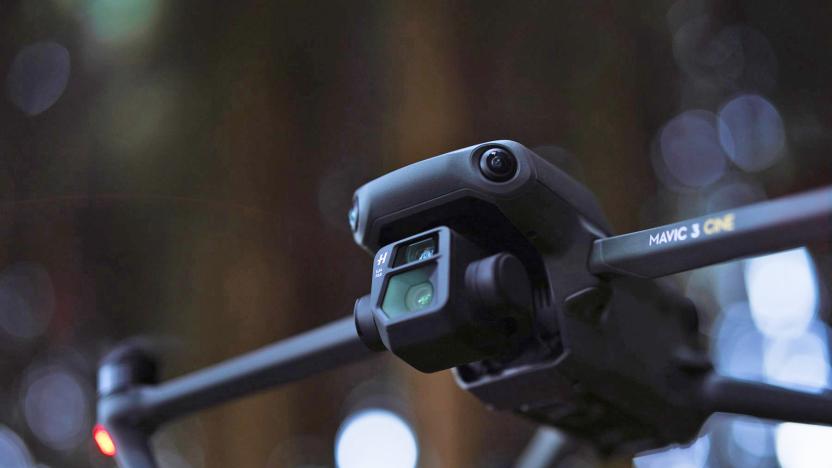
US puts drone maker DJI and seven other Chinese companies on investment blocklist
The US government will place DJI and seven other Chinese companies on an investment blocklist for alleged involvement in surveillance of Uyghur Muslims.

US government agrees to lift ban on Xiaomi
The US government has agreed to remove Xiaomi from a Trump administration blocklist after the company filed a lawsuit earlier this year.
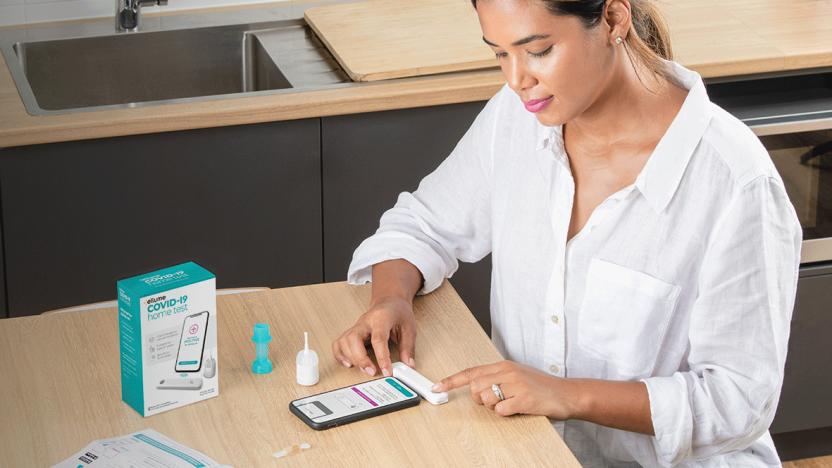
US invests $232 million in at-home, phone-based COVID-19 tests
Ellume will open a factory in the US to ramp up production.
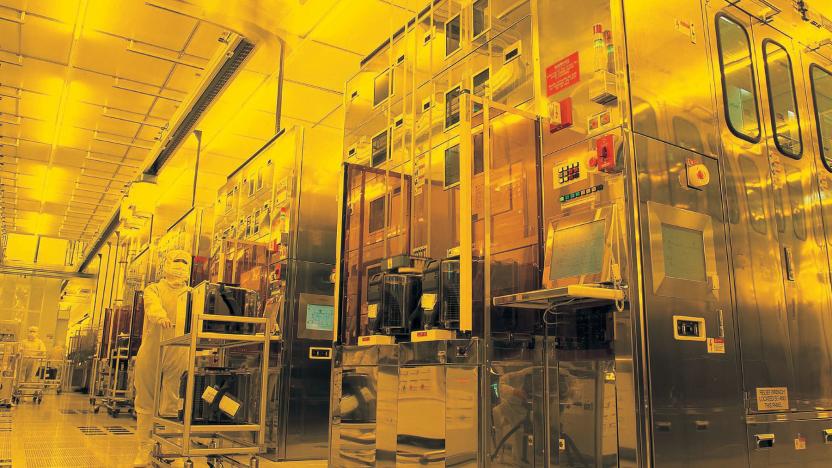
Apple chip-maker TSMC is building a $12 billion plant in Arizona
Taiwan Semiconductor Manufacturing Co. (TSMC), which manufactures processors and other chips for Apple, NVIDIA and many other firms, has confirmed that it will build a $12 billion chip fab plant in Arizona.

Federal agencies reportedly bought phone location data to track immigrants
Since at least 2017, the US federal government has been buying commercially-available cellphone location data to aid in immigration and border-related enforcement actions, according to a report from The Wall Street Journal. The data is the type of anonymized location information that analytics firms typically sell to digital advertisers so that they target specific consumers. In other words, it's information most people consent to sharing every time they install a new app on their phone.
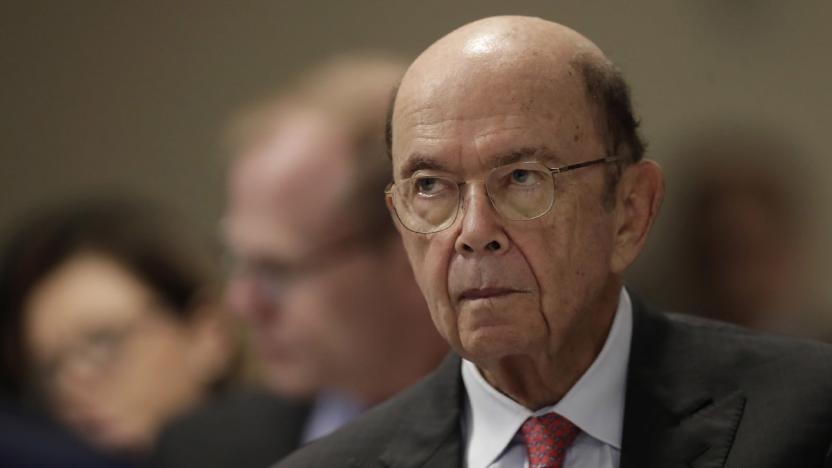
US gives Huawei another 90 days to serve existing customers
The US government has granted Huawei another 90 days to buy from American suppliers. The "temporary general license" extension will allow Huawei to continue servicing existing US customers before it is fully blacklisted, Reuters reports. The company now has through November 19th to maintain existing telecom networks and provide software updates to existing Huawei handsets.

Cisco Systems pays out $8.6 million in cybersecurity whistleblower case
Cisco Systems has paid out a penalty of $8.6 million after failing to disclose security holes in software it sold to the US government. Video Surveillance Manager was used by authorities like LA Airport, the Washington D.C. police and New York City's MTA. Unfortunately, the system had flaws that meant an attacker could gain control of the system, although there is no evidence that any successful attack occurred.

The NSA can now use Samsung's Galaxy phones for classified work
Samsung Galaxy phones and tablets have just become the first consumer mobile devices approved by the US National Security Agency (NSA) to carry classified documents. The edict covers most of its newer Galaxy devices, including the Galaxy S5, Galaxy Note 4, and the Galaxy Note 10.1 tablet (2014 edition) -- as long as they're equipped with Knox, Samsung's mobile security app. Knox-enabled devices have already been approved by the US Department of Defense, but only for general, not classified, use. That's a shot of good news for Samsung in the face of recent dismal earnings, and it no doubt wants to translate the NSA's golden nod into consumer and corporate sales. Ironically, many of those potential customers may be paranoid... of the NSA.

NYT: Chinese hackers targeted top-secret US employee files
The New York Times is reporting that Chinese hackers penetrated a US government network, likely going after the files of thousands of workers who applied for top-secret security clearances. The hackers accessed the Office of Personnel Management databases in March before they were detected and blocked, though there's no word on how deep the breech went. Officials did say, however, that they hadn't "identified any loss of personally identifiable information." Though the hacking originated in China, it's not clear if the People's Liberation Army (PLA) or other government spy agencies were responsible. The FBI recently took the unusual step of charging PLA officials (who aren't likely to be tried) because of several brazen attacks. Still, the Chinese have their own beefs against US spies, who are clearly pretty good at hacking too.

US officials say less than 300 phone numbers were investigated in 2012, data thwarted terrorist plots
With all the coverage of PRSIM and the NSA's data collection have been getting recently, it's no surprise that the US government is eager to rationalize its actions. The crux of the latest defense seems to be that the government isn't using its treasure trove of data very often: according to recently declassified documents, the NSA used the database to investigate less than 300 phone numbers last year. These efforts reportedly prevented terrorist actions in more than 20 countries. It's a small assurance, but a vague one, and the NSA knows it -- according to the Associated Press, the organization is trying to get the records of these thwarted plots declassified to demonstrate the program's value to concerned citizens. The reveal of such data might be a convincing argument, but disquieting revelations continue to roll out: members of congress are now reporting that the NSA has acknowledged that it does not need court authorization to listen to domestic phone calls. Either way, we're certainly open to more government transparency.

Apple denies involvement in US government communication surveillance
Apple has told CNBC that it does not provide the US government with direct access to its servers, contradicting a Washington Post report that the company, among others, is knowingly participating in a secret program that is allowing the government to monitor the activity of US residents. The program, codenamed PRISM, was created in 2007 and is used by the National Security Agency and the FBI to provide information on everything from emails to photo and videos and connection logs to monitor a person's online movements -- all without having a warrant issued. The companies the Washington Post say have openly complied with PRISM include Apple, Google, Microsoft, Yahoo, Facebook, PalTalk, Skype and YouTube with Dropbox appearing to jump on board soon. PRISM can "quite literally can watch your ideas form as you type," a government official told the Washington Post. Google has issued a similar denial to Apple, saying that no "back door" into Google's servers exist.

US government funds five-year tech research 'hub' to make substantially cheaper, more powerful batteries
Want substantially better battery tech? Sometimes, you just have draw together the greatest heroes scientists and engineers and just hammer these things out -- and it helps when there's some money to splash around, too. The US government's awarding $120 million over five years to a new research hub that will draw together a handful of progressive independent research programs, coordinating five national labs, five universities and four private firms to push the humble power pack to new heights. These future advances may not be precisely geared toward making your phone go (even) further however, with energy storage improvements likely to feed into improved vehicle battery storage and charging and better ways to hold onto renewable energy sources. The hub management is being compared to the likes of AT&T Bell's transistor development, the Manhattan project and MIT's Lincoln lab that was responsible for the radar. So no pressure there then.

Reuters: White House finds no evidence of spying by Huawei, feels unsafe anyway (update: White House denies)
Just last week, a Congress committee associated Huawei with "credible allegations" of "bribery, corruption, discriminatory behavior and copyright infringement." The report, of course, was part of the Legislative branch's ongoing concern of the company's alleged threat to national security. Today Huawei may have finally caught a break from the US government, albeit a somewhat backhanded one: according to Reuters, a White House ordered review says that there is no evidence of spying on the Chinese company's part. The other side of the hand lands when the report cites exploitable vulnerabilities in Huawei hardware -- one person familiar with the White House review said it found the company's equipment "riddled with holes," and susceptible to hacking. Security complaints aside, the government's old spying concerns are still there. "China has the means, opportunity and motive to use telecommunications companies for malicious purposes," said the House Intelligence Committee's Dutch Ruppersberger, explaining to Reuters that both Huawei and ZTE has pinned their limited cooperation on restrictions from the local government. Even if Huawei hasn't been caught spying, it's still something it could do -- and that's reason enough, it seems, for the US government to avoid doing business with the firm. Update: White House spokesperson Caitlin Hayden told The Hill that no such investigation has been made, stating: "The White House has not conducted any classified inquiry that resulted in clearing any telecom equipment buyer as reported in Reuters," recalling the US government's exclusion of Huawei in the planning for America's interoperable wireless emergency network.

Alt-week 7.21.12: Outer space, flying hotels and federal trolls
Alt-week peels back the covers on some of the more curious sci-tech stories from the last seven days. Whether you've got your head in the clouds, or your feet firmly locked on terra firma (or is that terrorist firma?) the last seven days in Alt have something for you. We look at a massive aircraft, that could revolutionize air travel as we know it, as well as look back at a real-world project that heralded a significant shift even further up in the sky. There's the NASA logo that never came to be, and lastly, for those less fond of heights, we hear how a US government department is heading in the other direction -- albeit culturally -- all in the fight against terror. This is alt-week.

White House aims to make internet '90 percent cheaper' to build, teams up with Mozilla for $500k competition
The government's US Ignite partnership aims to push the growth of next-generation broadband networks, teaming up with over 100 start-ups, universities and existing tech companies like HP, Comcast and Verizon for the project. The President is set to sign an executive order today that aims to cut the cost of broadband construction across federal roadways and properties by up to 90 percent. The White House is also is looking to improve "next-generation applications and (the) digital experience," running on networks that are a heady 100 times faster than what's in use today. The National Science Foundation has thrown in $250 million to assist the partnership's creation of a national 1-gigabit network that would connect together academic and developer hubs. Mozilla has decided to team up with the foundation to offer up a $500,000 prize pot for developers looking to help create the "internet of the future". The challenge aims on education, healthcare, public safety and other (admittedly broad) topics, with the top ideas capable of grabbing $15,000 from the prize fund. And if Google reckons gigabit networks are the way to go, who's the White House to argue?

Precise Biometrics' Tactivo for iPhone, iPad locks data by fingerprint and smart card, is overkill for your diary (video)
iOS device security has regularly been a concern of the government, but locking down one of Apple's devices for the government is still fresh. Precise Biometrics hopes to have the problem licked through the Tactivo, a combo fingerprint and smart card reader for the iPhone 4 / 4S (and the iPad, in the summer). Either method keeps data inside an app away from prying eyes, and while they won't tighten the security around the built-in apps, they do make sure a third-party app's data meets US and international government privacy specs without having to use a BlackBerry. We're not surprised that the Tactivo needs to engulf the iPhone in a full case to work its magic, although there's a micro-USB port to keep it powered and synced up. It's all a bit much if you're just trying to make sure your list of high school crushes stays a secret, and the price reflects that -- at $249 a pop, the Tactivo is really meant for agencies and companies for whom losing the data on an iPhone would cost a lot more. Still, if you're running an outfit encouraging BYOD phone use or just really, really want your secret passions to stay private, both the iPhone case and a BioSecrets app are ready today.

US government sticking with BlackBerry, appreciates RIM's focus on security
Just when you thought RIM couldn't catch a break, The Washington Post is reporting the US government doesn't plan to jump smartphone ships anytime soon. According to the publication, Casey Coleman (chief information officer at the General Services Administration) says that while the agency may have handed out iPhone and Android phones to the staff, a big chunk of the 12,000 agency-issued handsets are BlackBerry devices. The main reason behind the choice of Berries is RIM's focus on security, which Coleman notes "is paramount for government use." Still, the GSA officer isn't ruling out switching to a different OS in the distant future, as platforms like iOS and Android start to become "equally secure." For RIM's sake, we hope the refocusing on enterprise pays off.











